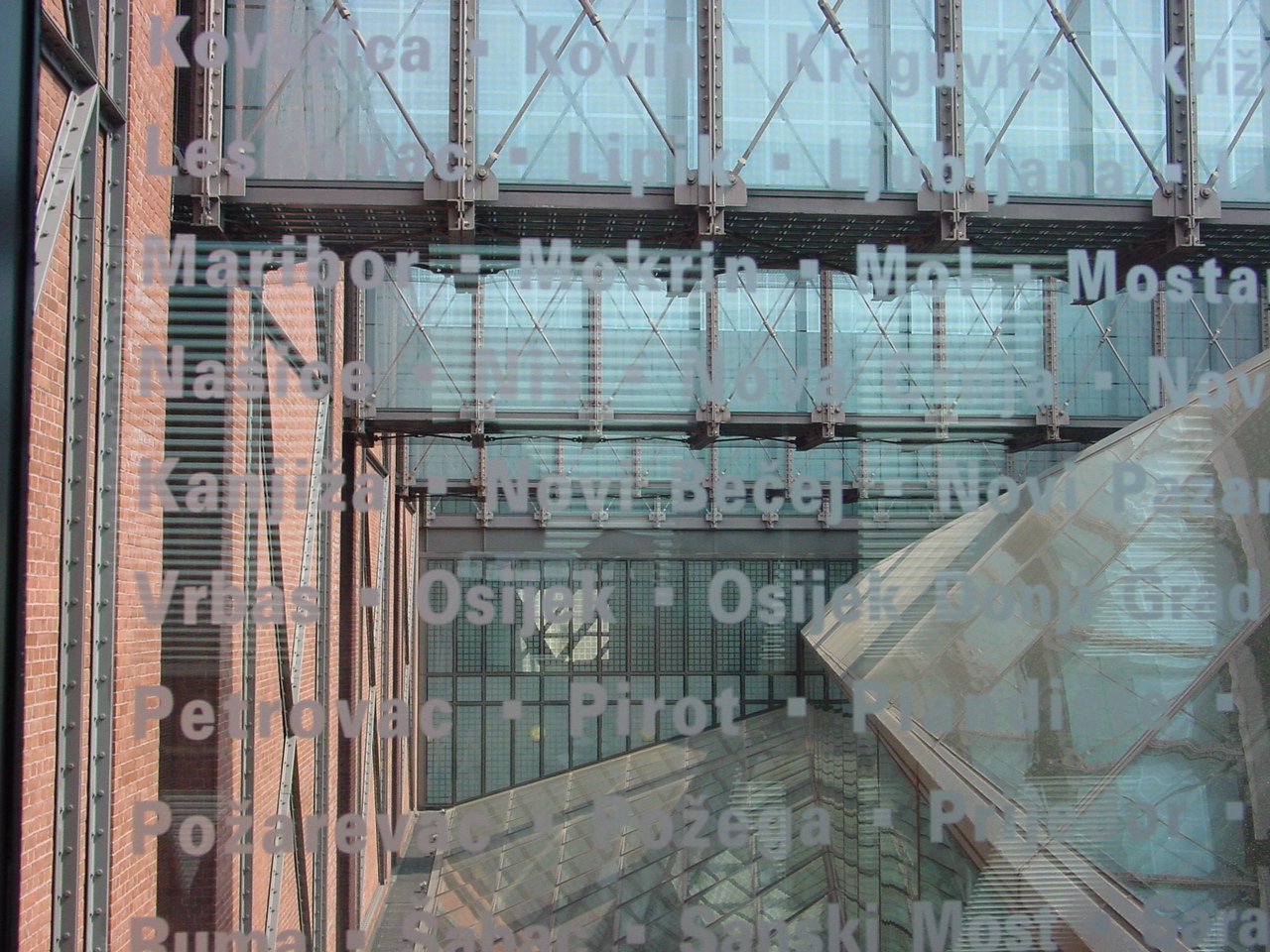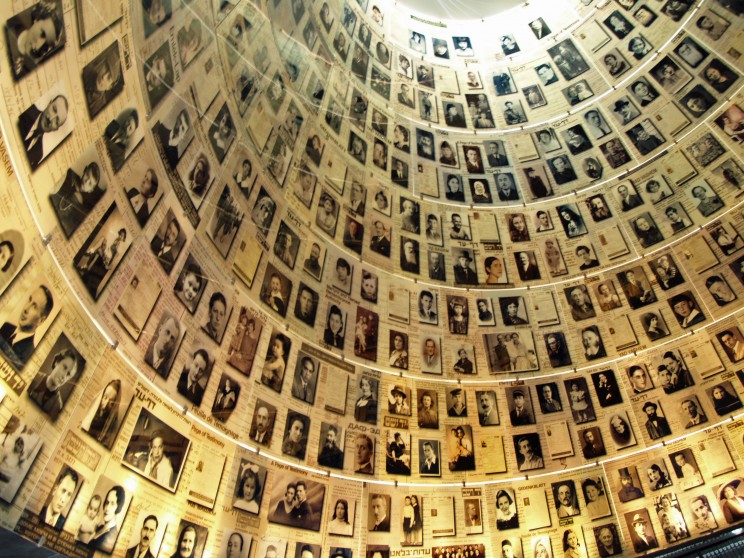While nascent talk of the Holocaust was in the air when I was growing up in New York City, we did not learn about it in school, even in lessons about World War II or the waves of immigration to America’s shores. There were no public memorials or museums to the murdered millions, and the genocide of European Jewry was subsumed under talk of “the war.”
My father was a somber man who arrived here from Poland after the war and, like many survivors, kept to himself, trying his best to block out the past. Growing up, my connection to my father’s lost world consisted of names mentioned in hushed tones and photographs retrieved from hidden boxes.
But as I grew older, I watched with great interest, more than a little curiosity, and a good deal of relief as it became more acceptable to talk about “our” tragedy. By the 1980s, lessons about the genocide of European Jewry became de rigueur in high schools through the nation. In the following decade, people could flock to a hulking museum in our nation’s capital that told the story for all who cared to listen.
The Holocaust became a universal moral touchstone that called upon us to defend our common humanity against the capacity for evil. But today, on the eve of International Holocaust Remembrance Day on 27 January, the lesson we Jews seem to draw from our history is that those outside the tribe cannot be trusted.
In the wake of the recent terrorist attack on a kosher food store in Paris, and as anti-Semitism rises in France and elsewhere, these fears seem understandable. I know these kinds of fears well. Even in the relative comfort of his postwar existence, my father had a recurring nightmare that he was being chased by German shepherds.
But when such fears lead to catastrophic thinking, they harden our hearts to the suffering of others and contribute, paradoxically, to a sense of Holocaust fatigue among many Jewish Americans — particularly younger ones.
“I’m sick of the Holocaust as a shorthand for ‘we suffered more than you, so we should get the piece of cake with the rosette on it,’” a 20-something columnist wrote in the Forward. Peter Beinart in The Crisis of Zionism argues that the growing emphasis on the Holocaust in American life beginning in the 1960s and 1970s marked the end of Jewish universalism.
“Liberalism was out,” Beinart wrote. “Tribalism was in.”
Beinart and others are partly right: Holocaust trauma is too readily exploited. But historically, Holocaust commemoration efforts have been more than simply exercises in tribalism. They often emerged from an urge to acknowledge and alleviate human suffering writ large.
Raphael Lemkin, the Polish-Jewish legal scholar and Holocaust survivor who coined the term “genocide” and fought to have the concept recognized by the United Nations, exemplified this impulse. So did the mobilization of the Holocaust second generation. Descendants of survivors, empowered by the progressive movements of the 1960s and 1970s, coaxed our parents to share their stories. The Holocaust consciousness we helped build was part of a larger search for self-expression and human rights.
Today, many Holocaust commemoration activities reflect this universal spirit as well, including the U.S. Holocaust Memorial Museum’s efforts to promote awareness of genocide in Sudan and elsewhere. Jewish-American donors provided the bulk of the funds for a memorial to the more than two million Cambodians murdered during the brutal reign of the Khmer Rouge, an acknowledgement of a shared tragic history.
These and other efforts to remember the suffering of others should be applauded, but they must be more than window dressing. They should also spur our own collective soul-searching. Committing funds for projects in places where Jews have few political or emotional investments, such as Cambodia or Sudan, is relatively easy. Subjecting our own deeply felt loyalties to Israel to scrutiny is a much more difficult, but no less important, task.
The truth is that at times our privileges may in fact be implicated in the suffering of others in the Palestinian territories, where life is brutal and frequently too short. A sense of hopelessness prevails among both Israelis and Palestinians, fueling acts of desperation and violence in the Middle East and beyond.
A chorus of leaders on both sides is promoting a politics of fear, declaring I cannot be my brother’s keeper when my brother is out to murder me. But on this Holocaust Remembrance Day, let us honor the memory of the parents and grandparents, uncles and aunts, and all of the unknown others we have lost by resisting such talk and redoubling our efforts to seek peace.
A version of this article first appeared on New Jersey Jewish News.
Headline image credit: Ruins of barracks at Birkenau. Photo by Dennis Frank (WeEzE). CC BY-SA 3.0 via Wikimedia Commons.
The post Holocaust consciousness must not blind us appeared first on OUPblog.

By Arlene Stein
If talk of the Holocaust was in the air when I was growing up in the 1970s I was barely aware of it, even in New York City which was home to a large Jewish population, many of whom were Holocaust survivors. We did not learn about the Holocaust in school, even in lessons about World War II, or about the waves of immigration to America’s shores. There was barely a category of experience called “the Holocaust.” The genocide of European Jewry was generally subsumed under talk of “the war.” A patchwork memorial culture was forming, but it was modest, somber, locally-based, and generally not seen as relevant to non-Jewish Americans. In encounters with family and neighbors in the early postwar years, survivors often felt misunderstood, unrecognized, and even shamed.
Today, in contrast, the genocide of European Jewry is a frequent subject of Hollywood films and part of US high school curricula. Our losses are much less private; now they have a name and a hulking museum in our nation’s capital. Few in the West would deny that remembering the Holocaust is one of our responsibilities as human citizens.

United States Holocaust Memorial Museum Bridges by Cumulus Clouds. CC BY-SA 3.0 via Wikimedia Commons
A number of historians have shown how American Jewish organizations gradually came to recognize the Holocaust and call for its public commemoration. But what of the efforts of survivors and their children? Paradoxically, they have been left out of such histories.
Interviews with survivors and descendants, and my own experiences, suggest that children of survivors were instrumental in bringing Holocaust stories into the public sphere. For decades after the war, few survivors talked openly about what they had endured, fearing that others did not want to hear, and trying to protect their children. That changed in the 1970s, when their children moved into adulthood. Influenced by feminism, the ethnic revival, and therapeutic culture, they began to probe their parents’ pasts, bringing their private stories of trauma into public view. In families where so many ghosts shared the dinner table, this was exceedingly difficult to do. Building a Holocaust memorial culture entailed a great deal of work: emotional, material, and political.
But even today, in the midst of a robust memorial culture, the Holocaust remains forbidden territory. We distance ourselves from it, bathing it in Hollywood homilies to the power of human kindness. We draw boundaries around it, housing it in concrete structures, hoping to contain it. A sense of fatigue seems to be setting in: many Jewish Americans yearn to be an ethnic and religious group defined by foods and ritual customs, rather than by pain and suffering.
A number of years ago, I sat in Carnegie Hall listening to the Klezmatics meld the music of the shtetl with contemporary folk. They had performed a song in Yiddish that spoke of the genocide in a small Polish town. As one of the performers translated the lyrics for the audience, a man sitting in front of me turned to his wife and said facetiously, “Oh that’s very uplifting.” It jarred his sense of what is suitable to perform in public, and what constituted entertainment.
More and more, one hears ambivalence about the fact that the genocide has emerged as a core element of Jewish identity. Like other Americans, Jews wish to move on from traumatic pasts. As sociologist Nancy Berns writes: “Closure offers order and predictability instead of ambiguity and uncertainty.” It allows us to “get on with our lives” and resume expectations of productivity and forward trajectories.
The permanent association of Jewish identity with victimization is highly problematic, to be sure. Jews, particularly in the United States, are no longer collectively powerless, even if they consistently perceive anti-Semitism to be more endemic to American society than public opinion polls say it is.
For much of the world the continued strife in the Middle East and Israel’s occupation of Palestinian territories captured in 1967 diminishes Jewish claims to moral authority and sympathy on the basis of past suffering. So do specious Holocaust analogies, such the recent claim by private equity titan Stephen A. Schwartzman that asking financiers to pay taxes at the same rate as those who work for a living is comparable to Hitler’s invasion of Poland.
Still, those who say that the past is behind us and that we need to move on fail to appreciate what a hard-won accomplishment Holocaust consciousness was, how much resistance those who tried to speak openly about the genocide often encountered during the first decades after World War II, and how important it has been for survivors and their children to finally be able to share their stories. In this light, the call for Jews to stop talking so much about their tragic past may be awfully premature.
Arlene Stein is Professor of Sociology at Rutgers and the author of Reluctant Witnesses: Survivors, Their Children, and the Rise of Holocaust Consciousness. Her writing has appeared in The Nation, The Forward, and Jacobin, among other publications.
Subscribe to the OUPblog via email or RSS.
Subscribe to only sociology articles on the OUPblog via email or RSS.
The post Holocaust fatigue and the will to remember appeared first on OUPblog.





